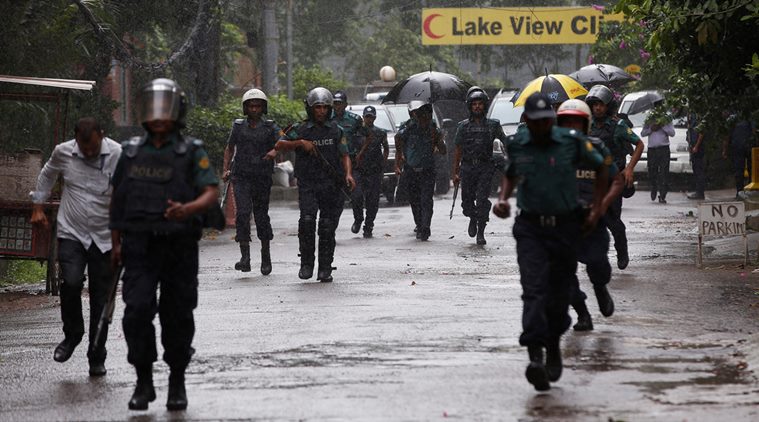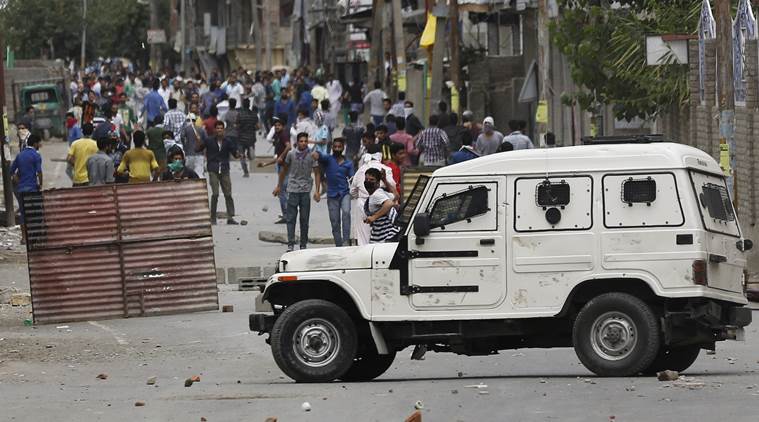The world needs leadership. And hashtags are no substitute for the real hard work of leadership across the world.
Istanbul, Dhaka, Baghdad, Medina have been prominent in the litany of recent terror around the world and noticeably the world didn’t respond in large numbers to any of these or other gruesome episodes of terror with the #jesuisistanbul #jesuisdhaka #jesuisbaghdad #jesuismedina or #jesuisanyplaceelse.
Before the birth of #jesuis, with the attack on Charlie Hebdo, no other massacres had invited such an outpouring of social media oneness in the world.
#jesuischarliehebdo spawned a trend of identifying with the victims of terrorism on Twitter. It continued for a while and then it fell into disuse.
We didn’t hash tag #jesuisyria for the millions of displaced or the hundreds of thousands killed there; or for the thousands of Iraqis killed in the US invasion and its aftermath; nor for the thousands slaughtered by ISIS in Syria or Iraq. Baghdad has just lost several hundred lives to ISIS terror in the last couple of weeks–no jesuis hash tags for them either.
Some believe that racism may be at play here; most of the people being killed around the world aren’t white. The Black Lives Matter Movement in the USA is responding to that very clear and present racism in the country. There is a feeling among citizens of the non-white/non-Western world too that their lives matter much less than the Western lives. The insane acts such as the George W. Bush invasion of Iraq and the mindless military foray of the Obama regime into Libya, without any forethought about the consequences, certainly lend credence to that view. But there is no visible movement across the globe to assert equality for the global lives. I believe it is sorely needed.
There is another more charitable view of the underwhelming outpouring of sympathy from the Western public for the recent and not so recent terror in other parts of the world. That view argues that perhaps the Western world is fatigued from the terror around us; hence there is a certain degree of numbness to the violence in the rest of the world.

Europe has been plagued by Islamist terror starting with attacks on Charlie Hebdo.
The United States has had its own share of violence; terror at the Orlando gay club which had snuffed out several dozen lives; the shooting of two black men at the hands of the police in two days, Philando Castile in Minnesota and Alton Sterling in Baton Rouge, Louisiana. The killing of five and shooting of another seven police officers in Dallas has shaken the country. That has now been followed by several police officers being shot at or otherwise being attacked in several US cities.
Afghanistan is seeing a surge of violence that we had been led to believe was under control and on the mend. Parts of Africa are reeling under Islamist terror, poverty, hunger, rabid corruption and neglect by governments.
The world is burning.
While one can’t accuse the leaders around the world of fiddling while it continues to burn, it is quite clear they don’t seem to have any satisfactory responses to the great crisis of the day –of violence and peace. Against the continuing scourge of violence in the name of religion they have miserably failed. They have been utterly unsuccessful in anticipating the dangerous consequences of their own deliberate actions.
Take for instance the case of the US in Iraq. While George W. Bush failed to find any military weapons of mass destruction in Iraq, he inadvertently unleashed the forces of religious extremism that once leashed turned into the plague of Islamist terror. Though on a much smaller scale, Obama didn’t fare much better in Libya. In its burning, the world is paying a heavy price for our leaders’ absolutely avoidable mistakes.

The world needs leadership. And hashtags are no substitute for the real hardwork of leadership across the world.
In India, I see dangers too: The turmoil in Kashmir which is now mainly driven by the Kashmiri youth; the Islamists raising their ugly skulls in Bangladesh on the eastern border; the Pakistani Islamists frothing at the mouth on the western border and China creating tensions and uncertainty on the northern border; on top of all that, the normal internal tensions of the Indian polity are being extremely exacerbated by the overly religious Hindutva/RSS/BJP political clan of Narendra Modi.
In a dangerous world, India finds itself guided by a self-styled strongman, long on rhetoric and short on leadership or any real solutions to India’s myriad problems. Modi’s inherent weakness lies not necessarily in his RSS roots but in his inability to recognise that what is being sold to him and the country by the RSS/Hindutva brigade is inherently dangerous to the long term peace, progress, unity, diversity and integrity of India.
Views expressed by the author are personal.





